Summer is quickly winding down, and with it, our desire for light plots, laughable conflicts, and feel-good formulas—fall requires books of a sturdier sort, the better with which to stave off the impending dark.
These recently published books provide sustenance of this type while also being fun, thought-provoking, and feminist AF. To my mind, this makes them perfect for September, a time when tan lines have yet to fade but nights are starting to grow crisp, and our brains are ready to go "back to school" (the better by which to subvert the patriarchy).
This Feminist AF round up includes magical realism, straight-ahead sci fi, a post-apocalyptic series you will binge on (guaranteed), a sparly overseas romance, a thought-provoking memoir, gonzo journalism, and top-tier short fiction—really, something for everyone.
![]() 1. "All of Us with Wings" by Michelle Ruiz Keil
1. "All of Us with Wings" by Michelle Ruiz Keil
Some of didn't go to Sweet Valley High. Or maybe we did, but we wore black and had piercings and lived another life in seedy all-ages punk clubs by night, where we had scenes, did drugs, and made some of the most meaningful connections of our lives (sometimes with people significantly older than we were). All of Us with Wings is the coming-of-age story for those of us whose adolescence didn't fit the script, and it takes place in a San Francisco so deeply infused with magic that it may be the only real San Francisco that still exists, now that the arteries of the city's bohemian heart have been clogged by techno cash. (Consider Ruiz Keil's San Francisco the mythic equivalent of Francesca Lia Block's L.A.)
The protagonist of the novel, Xochi, is a homeless teen when she meets Pallas, a precocious twelve-year-old who lives with her rockstar family—which consists only in part of people actually related to her—in a beautifully restored Victorian. Pallas's family takes Xochi in and gives her a job as Pallas's "governess," and when the two of them accidentally summon some ancient feminist furies in their bathtub/cauldron one night, Xochi will have to confront the painful events in her past that landed her on the streets in the first place—including an abusive stepdad/boyfriend. Told in luminous prose, this novel achieves an intoxicating blend of fairytale and realism that quickly proves addictive. (Don't say I didn't warn you.)
![]() 2. "The Stars Are Legion" by Kameron Hurley
2. "The Stars Are Legion" by Kameron Hurley
It takes a lot to blow the mind of a sci fi fan. Telepaths? Terraforming? New genders? No genders? Planets where life evolved with silicon, rather than carbon, at its base? Much of what mainstream readers might consider novel has been a trope in science fiction for decades, and having read really a whole lot in this genre, basically since I was a kid, it's rare for a book to truly rearrange my brain. Needless to say, this one did.
In The Stars Are Legion, Hurley has created a universe composed completely of planet-sized living ships, inhabited completely by women, who have an unsettlingly symbiotic relationship with those ships—many of whom are badass warriors hellbent on conquering others. When our protagonist, Zan, wakes up at the beginning of the story, she's told by people she's never seen before that they're her family, and that she's their only hope for conquering the ship known as the Mokshi, which holds the key to their survival as a people.
But things are not quite what they seem—and it's only in coming to understand what this ship really is, and who really inhabits it, that Zan will come to see the bigger picture, and the bigger destiny that awaits her. It's a sort of Illiad-inspired mindfuck of a book, with action, intrigue, and mind-bending plot twists to spare, but at its heart, The Stars Are Legion is a deeply feminist novel that asks the reader to consider the true strangeness of inhabiting a female body.
![]() 3. The Road to Nowhere series by Meg Elison
3. The Road to Nowhere series by Meg Elison
The first book of Meg Elison's Road to Nowhere series, The Book of the Unnamed Midwife, was published back in 2016—but if you're going to read the sequel, The Book of Etta (2017), and the recently released final installment in the trilogy, The Book of Flora, that's where you need to begin. When the protagonist awakes from a fever at the beginning of the first novel, she discovers that nine tenths of the world's population, and 99 percent of its women, have been wiped out by plague, and women are now considered the property of whatever roving band of warlike men decides to claim them.
The protagonist—a nurse and midwife, armed with both weapons and drugs—sets off to see what's left of the country (dressed, for her own protection, like a man), and what at first appears to be a feminist take on your standard dystopian novel soon becomes something much more interesting as the midwife meets friends, foes, and lovers of various sexes, while discovering new sorts of societies, families, and romantic relationships that are being tried out, in a world where the factors around gender and reproduction have shifted dramatically.
The journal the midwife keeps on this journey in turn becomes the holy book of a matriarchal society called Nowhere, where the protagonist of Book Two grew up—Etta/Eddy, raider, road warrior, and slayer of slavers. It's also the first place where the protagonist of Book Three, Flora—a transwoman, or "horsewoman," after the hormones she and her kind use to influence their gender presentation—first claims her autonomy, learning to see herself not as the possession of another but as one who claims herself.
In a world where human survival has become infinitely more precarious, how could heterosexuality be optional? And yet, in such a world, how could other forms of sex, and other conceptions of gender, not become central to any functioning society? The Road to Nowhere trilogy asks big questions about a world that's more possible than we might imagine, and it's a radically queer treatise on the future of sex.
![]() 4. "Besotted" by Melissa Duclos
4. "Besotted" by Melissa Duclos
Deliciously atmospheric. Utterly transporting. Convincingly erotic. Melissa Duclos's Besotted is the sort of book that feels like a fling, in the best sense of the word—in the sense of taking you someplace you probably never imagined you would go, as well as in the sense of being over far too soon.
In this story, one ex-pat at loose ends in Shanghai, Sasha, seduces another—her room mate and colleague, Liz, who's come there to teach English—and winds up falling head over heels in love with her. And really, it's not so much that Liz doesn't love Sasha back, so much as it is that Liz regards romance in Shanghai like a sparkling sequence of the city's happy hour offerings, while Sasha is looking for a reason to stay home.
Anyone who's ever been young, single, and traveling alone will recognize the way this book approximates the very type of romance it depicts—the type that's doomed from the start, but necessary, perhaps even inevitable, and, ultimately, unforgettable. Both Sasha and Liz are finely drawn, complex characters, but the most important character in the novel may be the city of Shanghai itself, in all its tensions, contradictions, and moments of unexpected beauty.
![]() 5. "Spinster" by Kate Bolick
5. "Spinster" by Kate Bolick
I blame the hardcover edition's cover design for the fact that I almost didn't pick up this title, convinced it was some sort of lightweight treatise on the vagaries of dating. But while that hot young lady in heels drinking tea in her tastefully designed apartment may look like something designed expressly for the readers of the Skimm (and frankly, I'm not convinced it's not), the book itself is a deep, and deeply astute, examination of what the institution of marriage has been for women over the last hundred or so years, and what "opting out" has represented for female artists, intellectuals, and tastemakers throughout history.
Bolick examines the subject through the lens of five inspiring female writers (including Maeve Brennan and Edna St. Vincent Millay) who, like the author, came to New York as young women and either delayed marriage longer than their contemporaries or eschewed it altogether. (Many of them were also well known for their taste in clothes and interior design, so the cover design is being more germane than you'd think.) The book ultimately takes no side on the subject of marriage—rather, it examines all the things that a marriage can be, as well as all the things that a coupled but unmarried life and a single life can be. A must-read for any woman who wants "a room of her own," whether marriage is on the table or not.
![]() 6. "Earthquakes in Candyland" by Jennifer Robin
6. "Earthquakes in Candyland" by Jennifer Robin
There are great men in history who risked their lives to explore the great unknown—to be the first to step foot on the moon, to explore the frozen poles. Jennifer Robin is such an explorer, but the territory she's explored is humanity itself, that tumble and crush of souls as they move past us on the street, the pressure their inner lives exert. Robin been compared to Studs Turkel—as well as William Burroughs, Henry Miller, and Anais Nin—all of which is apt. But let's be clear here: No one has more access to the inner lives of strangers than a woman who's willing to listen—all day, if necessary—and no one risks more by doing so.
Robin chronicles the lives of folks she met hitchhiking, on the Greyhound, in bus stations, on the streets, in cabs, and in bars, often in their own voices, and in deft, gonzo prose that's part performance poet, part anthropologist. Moreover, she does so with love, for even the most outrageously narcissistic of individuals, as evidenced by two of my favorite pieces in this collection of essays and vignettes: "Union Station, 2006," a blow-by-blow account of a man-eating, child-hating, nonstop-talking cartoon-babydoll of a model/stripper's inner/outer monologue, and "Tony (Hula-Hoopin')," which chronicles the author's night on the town with what one can only hope is the douchiest techbro in Portland. Later riffs on politics, especially as they veer into statistics, lack the shock of the novel delivered by Robin's deft portraiture, but serve to elevate these snapshots of individual neuroses into a composite of national ones. All told, there is nothing else like this book in this or any other world, and though Robin may be too underground to ever truly gain the following she deserves, she's a goddamn astronaut of the human heart.
![]() 7. "Black Light: Stories" by Kimberly King Parsons
7. "Black Light: Stories" by Kimberly King Parsons
I still remember the shock of reading Denis Johnson's Jesus' Son, circa 1995—the sense that I'd never read such absolutely top-shelf short stories that were so deeply transgressive. That's how I felt after reading Kimberly King Parsons' Black Light, which begs the question: How exactly, in 2019, does a short-story collection manage to feel transgressive?
Like Johnson, Parsons writes about drugs, but her characters' drug use isn't what defines them; rather, it's just one field in the Venn diagram of their highly intersectional identities. And while Jesus' Son was largely about folks at the margins of society, Parsons's characters live ostensibly mainstream lives. (In one of my favorite stories, "Starlite," a woman and her supervisor call in sick and spend the day in a seedy motel doing speed; at the end of the day—which ranges from hilarious to absurd to surprisingly profound—she puts her work clothes back on and heads home to her hubby, with no one the wiser.)
But this book is also transgressive in the way that Carmen Maria Machado's Her Body and Other Parties is transgressive, in the way it centers the lives of women, queer ones in particular. There's the adolescent girl in love with her best friend, who tried being lesbian for a while but then fell in love with Jesus; the big girl who can't believe that her medical-resident boyfriend is actually attracted to her, and who obsesses about the diseases that may infect the bodies of strangers; the receptionist who's got an anorexia pact with her best friend, and is deeply jealous of the woman's husband—maybe because she's in love with her friend, or maybe because her friend's husband seduces her friend into eating barbecue. All of this, and Texas too, told in a manner that should keep aspiring prose stylists busy in college classrooms for years to come. T Kira Madden calls Black Light "a work of thunderous virtuosity," and really, it's just that good.
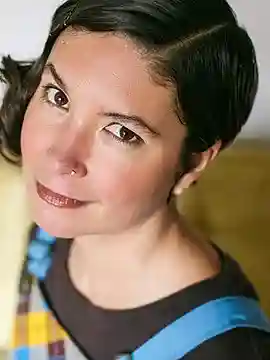
About the author
An author, editor, and educator, Susan DeFreitas’s creative work has appeared in the Writer’s Chronicle, Story Magazine, the Huffington Post, Daily Science Fiction, and Southwestern American Literature, along with many other journals and anthologies. She is the author of the novel Hot Season, which won a Gold IPPY Award for Best Fiction of the Mountain West, and holds an MFA from Pacific University. She divides her time between Santa Fe, New Mexico, and Portland, Oregon, and has served as a freelance editor and book coach since 2010.
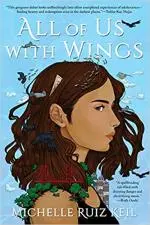 1. "All of Us with Wings" by Michelle Ruiz Keil
1. "All of Us with Wings" by Michelle Ruiz Keil
 2. "The Stars Are Legion" by Kameron Hurley
2. "The Stars Are Legion" by Kameron Hurley
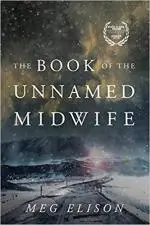 3. The Road to Nowhere series by Meg Elison
3. The Road to Nowhere series by Meg Elison
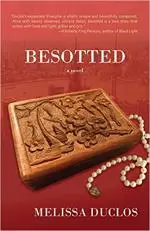 4. "Besotted" by Melissa Duclos
4. "Besotted" by Melissa Duclos
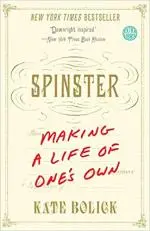 5. "Spinster" by Kate Bolick
5. "Spinster" by Kate Bolick
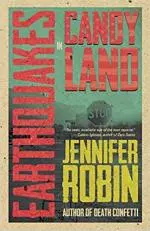 6. "Earthquakes in Candyland" by Jennifer Robin
6. "Earthquakes in Candyland" by Jennifer Robin
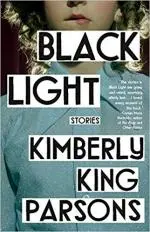 7. "Black Light: Stories" by Kimberly King Parsons
7. "Black Light: Stories" by Kimberly King Parsons








